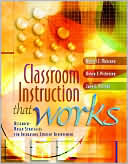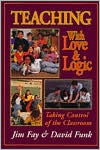Learning and Instruction: Theory into Practice
This comprehensive text takes a models approach by presenting separate chapters on individual theorists and perspectives. Within this well-organized structure, Gredler offers meticulouly accurate coverage of contemporary learning theories and their application to educational practice–including issues of readiness, motivation, problem-solving, and the social context for learning. Key content include increased emphases on the contributions of neuroscience and of Vygotsky’s work.
Search in google:
KEYBENEFIT: With an increased emphasis on cognition and constuctivism,thiswell-organized book offers superior coverage of contemporary learning theoriesand their application to educational practice. It translates basic assumptionsand principles of seven contemporary learning theories into easilyunderstandable guidelines for classroom instruction, and discusses issuesrelated to each theory, including readiness, motivation, problem-solving, andthe social context for learning. Following a consistentchapter format, it provides a logical scaffold for comparing and contrastingtheories, and includes a set of instructional planning steps and a model lessonfor each theory. It offers clearly designed tables and figures to reinforcematerial with visual representations of the book's more complex and abstractconcepts. Two new chapters appear in this edition: One introduces informationprocessing theory; another explores metacoognition and problem-solving. Readerswill also find updated material and references throughout, particularly in thediscussions of constructivism Paiget, self-efficacy, and Weiner's theory.
PREFACE: \ Preface\ Against the tapestry of changing educational and social events, theories of learning continue to address the complexities of human learning and cognitive development. Rapid popularity of a theory, typically followed by misinterpretations, is sometimes followed by corrected perceptions and, as the theory matures, a legacy of one or more major concepts that enter the mainstream of educational thought. New in this edition are current applications of classical conditioning and Gestalt psychology, new developments in contemporary theories, and similarities and differences between each theory and other perspectives. In addition, the concepts in Vygotsky's theory are clarified, particularly the role of the teacher and subject-matter learning in cognitive development.\ I would like to thank the following individuals for their review of this edition: Kay W Allen, University of Central Florida; Michael Bloch, University of San Francisco; Michael T. Dealy, New York University; and Fernando Hernandez, California State University, Los Angeles. In addition, I would like to thank the reviewers of the previous edition, Joyce Alexander, Indiana University; Scott W Brown, University of Connecticut; and Michael J. Wavering, University of ArkansasFayetteville, for their helpful comments.\ Margaret E. Gredler
Pt. I Introduction 1Ch. 1 Overview 2Ch. 2 Early Learning Theories 36Ch. 3 The Human Brain 71Pt. II Learning-Process Theories 95Ch. 4 B. F. Skinner's Operant Conditioning 96Ch. 5 Robert Gagne's Conditions of Learning 141Ch. 6 Cognitive Perspectives: I. The Processing of Information 188Ch. 7 Cognitive Perspectives: II. Metacognition and Problem Solving 226Pt. III Cognitive-Development Theories 263Ch. 8 Jean Piaget's Cognitive-Development Theory 264Ch. 9 Lev S. Vygotsky's Cultural-Historical Theory of Psychological Development 305Pt. IV Social-Context Theories 349Ch. 10 Albert Bandura's Social-Cognitive Theory 350Ch. 11 Cognitive Models and a Theory of Academic Motivation 391Glossary 442Name Index 450Subject Index 457








